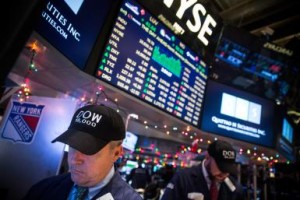Dow Jones Posts Highest Gains Since 2008
 After nearly a week of turbulence following the devaluation of the Chinese Yuan and subsequent slowdown of Chinese markets, the Dow Jones Industrial Average gained 619 points on Wednesday, the highest daily gain since the financial crisis of 2008. This helped to balance a loss of more than 1100 points at the end of the last trading week. The NASDAQ and S&P 500 also posted substantial gains
After nearly a week of turbulence following the devaluation of the Chinese Yuan and subsequent slowdown of Chinese markets, the Dow Jones Industrial Average gained 619 points on Wednesday, the highest daily gain since the financial crisis of 2008. This helped to balance a loss of more than 1100 points at the end of the last trading week. The NASDAQ and S&P 500 also posted substantial gains
Despite the Wednesday recovery of worldwide markets to a more reasonable level, concerns about the slowing growth of the Chinese economy remain prevalent. Chief among these worries is that by carefully controlling the value of the Yuan and inserting huge amounts of liquidity into its own stock market to prop up share prices, the Chinese government has obscured the real value of Chinese companies. It is, in the current market conditions, virtually impossible to tell which companies are performing well organically and which are not. Opinion also seems to be divided in China as to the best method of handling the slowdown, with president Xi Jinping and key aides, including prime minister Li Keqiang disagreeing over such matters as managing share prices and strategically devaluing the Yuan.
While the Wednesday climb seems to have somewhat stabilized world markets for the present, the long term effects of a general Chinese slowdown will depend entirely on the way in which that slowdown in handled. Even with the enormous rebound, most indices have still lost a substantial amount of share value, indicating that even the most optimistic investors see a period of reduced profits ahead.